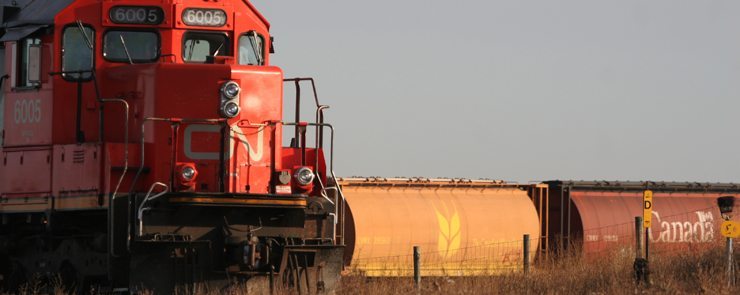Federal transport minister Denis Lebel launched Parliament Hill hearings on rail service legislation last week by arguing the bill is a milestone for the shipping industry and should receive quick approval.
Opposition MPs are insisting that shippers who want to speak at the committee should have a full hearing, but transport committee chair Larry Miller said he hopes witness hearings can be wrapped up by March 7 after just two weeks of process.
“Things can come up, but I hope we can finish up when we meet March 7,” he said.
Read Also

Agritechnica Day 3: Hybrid drive for a combine, data standards keep up to tech change and tractors of the year
Agritechnica 2025 Day 3: Hybrid drive for a combine, data standards keep up to tech change and tractors of the year.
If that schedule works, Bill C-52 could be back in the House of Commons for final debate by late March and through the Senate and into law by summer.
Opposition MPs, who say they agree with the principle of the legislation and agreed unanimously to send it to committee, may try to extend hearing time, creating potential political partisan struggles at the committee.
Lebel defended Bill C-52 as a way to put shippers in “the driver’s seat” in relations with railways, all the while insisting that it is balanced legislation that does not take sides.
“This legislation will help ensure that railways and shippers work together to accomplish a shared goal to improve rail freight service in Canada,” Lebel told the House of Commons transport committee Feb. 12.
Opposition MPs argued that the bill is not tough enough on the railways.
Several Conservative MPs suggested it is too one-sided in favour of shippers.
The transport minister said the proposed regime of arbitrated service agreements and fines of up to $100,000 if railways do not live up to the agreements is aimed at convincing railways that working with shippers is the best business plan.
“The intent is to create the conditions that will allow for successful commercial negotiations that (would) normally be possible in a free market,” he said.
“Ideally, the legislation will never have to be used.”
However, it will be there as a backstop if shippers find carriers unreasonable, he added.
“The shipper will be in the driver’s seat,” said Lebel.
“He gets to trigger arbitration, identify the type of service desired and frame the issues to be addressed in front of the arbitrator.”
Shippers, including agricultural producers and companies, will be able to appeal to the Canadian Transportation Agency if they cannot reach a satisfactory deal with a railway. The arbitration process will be no more than 45 days with the ruling binding.
Transport Canada officials told MPs that shippers would have operational obligations to load cars when they are delivered, but there would be no penalties for failure to comply.
Railways could take them to court for damages.
It led Toronto MP Joe Daniel to suggest the bill is one-sided.
“The way the bill is actually put forward, it almost seems to be favouring the shippers rather than trying to come up with an equitable solution,” he said.
The railways will make the same point when they appear as witnesses. They insist legislative intervention is unnecessary.
Lebel insisted the bill is balanced, correcting a current market power imbalance.
Officials said the terms of the bill will apply to federally regulated short-line railways.
As well, any penalties for non-compliance by the carriers will go to the government rather than the shippers. Lebel said the potential for fines would encourage railways to do the right thing and the fact that there would be no revenue reward for shippers would deter them from wanting to use the system frivolously.
Opposition MPs complained the legislation would not apply to shippers who have already signed a service agreement with a carrier, even if its terms are worse than are possible under Bill C-52.
Lebel said most of the private agreements end in a year or two and then shippers could move to legislative remedies if need be.















